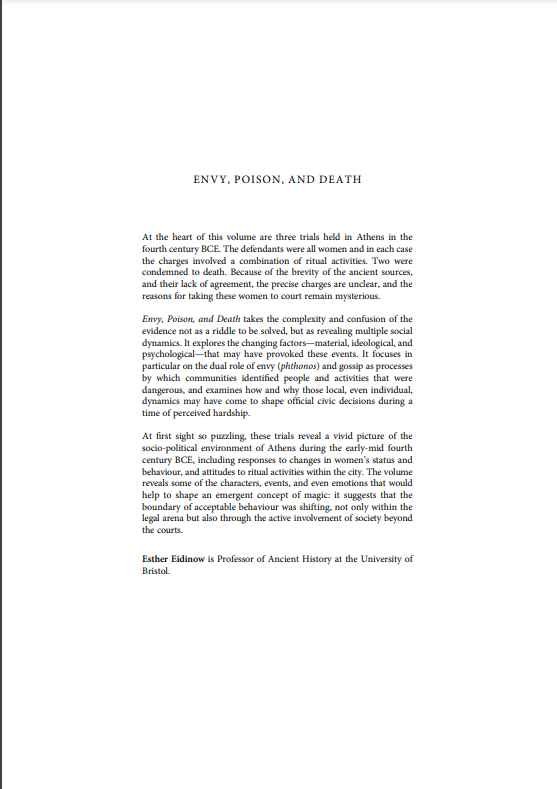By: Esther Eidinow
At the heart of this book are some trials conducted in Athens in the fourth century BCE. In each case, the charges involved a combination of supernatural activities, including potion-brewing and cult activity; the defendants were all women. Because of the brevity of the ancient sources, and their lack of agreement, the precise charges are unclear; the reasons for taking these women to court, even condemning some of them to die, remain mysterious. This book takes the complexity and confusion of the evidence not as a riddle to be solved, but as revealing multiple social dynamics. It explores the changing factors—material, ideological, and psychological—that may have provoked these events. It focuses in particular on the dual role of envy (phthonos) and gossip as processes by which communities identified people and activities that were dangerous, and examines how and why those local, even individual, dynamics may have come to shape official civic decisions during a time of perceived hardship. At first sight so puzzling, these trials come to provide a vivid glimpse of the sociopolitical environment of Athens during the early to mid-fourth century BCE, including responses to changes in women’s status and behaviour, and attitudes to particular supernatural/religious activities within the city. This study reveals some of the characters, events, and local social processes that shaped an emergent concept of magic: it suggests that the legal boundary of acceptable behaviour was shifting, not only within the legal arena, but also with the active involvement of society beyond the courts.
Oxford, UK: Oxford University Press, 2015. 434p.




